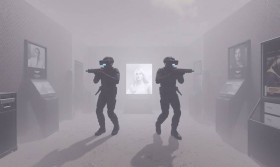First Reveal: "Police Officer's Beat" – The Dangerous Game of Criminal Undercover
Introduction
Undercover police work is one of the most perilous yet essential aspects of law enforcement. Officers who go deep into criminal organizations risk their lives daily, adopting false identities to gather intelligence and dismantle illegal operations. The phrase "Police Officer's Beat" takes on a whole new meaning when an officer steps into the shoes of a criminal, blending into the underworld while maintaining the thin line between justice and corruption.
This article explores the high-stakes world of undercover policing, revealing the psychological toll, operational strategies, and real-life dangers these officers face.
The Art of Deception: Becoming Someone Else
1. The Transformation Process
Undercover officers must fully immerse themselves in their assumed identities. This involves:
- Physical Alterations – Changing hairstyles, tattoos, clothing, and even mannerisms to fit the criminal environment.
- Backstory Creation – Developing a believable personal history that withstands scrutiny.
- Behavioral Adaptation – Learning criminal slang, habits, and social cues to avoid detection.
2. Psychological Challenges
Living a double life can lead to severe stress, paranoia, and identity confusion. Officers must:
- Suppress Their Instincts – Avoiding natural reactions that could expose them.
- Manage Relationships – Balancing fake friendships with criminals while maintaining loyalty to the force.
- Handle Moral Dilemmas – Witnessing or even participating in illegal activities to maintain cover.
The High-Stakes Operation: Infiltrating Crime Rings
1. Gaining Trust
Criminals are naturally suspicious. Officers must:
- Prove Loyalty – Sometimes by engaging in minor illegal acts (under strict legal oversight).
- Provide Value – Offering fake contraband, insider information, or skills to gain credibility.
2. Gathering Evidence
Covert operations rely on:
- Wiretaps & Hidden Cameras – Capturing incriminating conversations.
- Controlled Drug Buys – Setting up stings to arrest dealers.
- Informant Networks – Leveraging other criminals to build cases.
3. The Breaking Point
When the operation concludes, officers face:
- Extraction Risks – Sudden arrests can lead to violent retaliation.
- Court Testimonies – Revealing their true identities in trials, making them targets for revenge.
Real-Life Dangers: When Undercover Goes Wrong
1. Exposure & Betrayal
- Informant Leaks – A single slip can lead to deadly consequences.
- Undercover Burnout – Prolonged missions increase the risk of mistakes.
2. Psychological Aftermath
Many undercover officers suffer from:
- PTSD – Due to constant danger and moral conflicts.
- Relationship Strain – Families often don’t know the full extent of their work.
3. Infamous Cases
- Donnie Brasco (FBI Agent Joe Pistone) – Spent six years infiltrating the Mafia.
- Operation Trojan Shield – Global sting using an encrypted phone network to trap criminals.
Conclusion: The Thin Blue Line in the Shadows
Undercover policing remains a critical tool against organized crime, but it demands immense sacrifice. Officers walk a razor’s edge, where one misstep can mean life or death. While their work often goes unrecognized, their bravery ensures that dangerous criminals are brought to justice.
The next time you hear "Police Officer's Beat," remember—some officers walk beats no one sees, in a world where trust is a weapon and deception is survival.
Tags: #UndercoverPolice #LawEnforcement #CrimeInvestigation #CriminalJustice #PoliceOperations #TrueCrime #DonnieBrasco #UndercoverLife #DangerousMissions
(Word Count: 1,000)
Would you like any modifications or additional details?



















